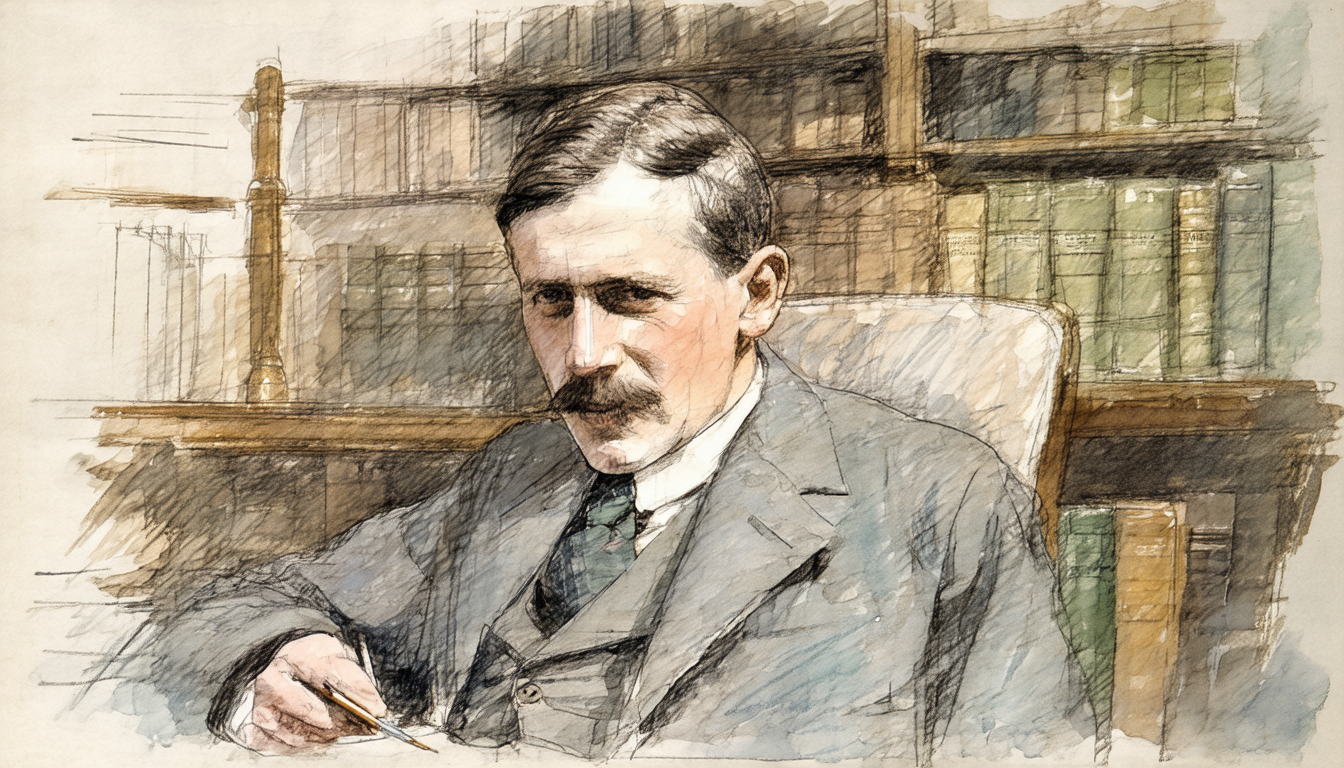John Dewey: A Life of Intellectual Curiosity and Educational Reform
John Dewey, one of the most influential American philosophers, psychologists, and educational reformers of the 20th century, left an indelible mark on the world of education and beyond. Born on October 20, 1859, in Burlington, Vermont, Dewey's life was a testament to the power of intellectual curiosity and the pursuit of social justice.
Early Life and Academic Journey
Dewey's early life in Burlington, Vermont, was marked by a strong emphasis on education and community involvement. His father, Archibald Dewey, was a merchant who valued education and encouraged his children to pursue their intellectual interests. Dewey's mother, Lucina Rich Dewey, was a former teacher who instilled in him a love of learning and a commitment to social responsibility.
Dewey attended the University of Vermont, where he studied philosophy, psychology, and education. He later went on to study under the renowned psychologist G. Stanley Hall at Johns Hopkins University, where he earned his Ph.D. in philosophy in 1884. Dewey's academic journey was marked by a desire to understand the human experience and to develop a philosophy of education that would empower individuals to reach their full potential.
Major Philosophical Contributions
Dewey's philosophical contributions were groundbreaking and far-reaching. He is perhaps best known for his theory of experiential learning, which posits that learning is most effective when it is hands-on and experiential. Dewey believed that students should be actively engaged in the learning process, rather than simply passive recipients of information. This approach to learning has had a lasting impact on educational theory and practice.
Dewey was also a strong advocate for democratic ideals in education. He believed that education should be a democratic process, where students are encouraged to participate in decision-making and to take an active role in their own learning. This approach to education was revolutionary for its time and has had a lasting impact on educational reform.
Significant Works
Dewey was a prolific writer and published numerous works throughout his career. Two of his most significant works are Democracy and Education (1916) and Experience & Nature (1925). Democracy and Education is a seminal work that outlines Dewey's vision for a democratic education system. In this work, Dewey argues that education should be a process of socialization, where students learn to participate in democratic processes and to become active citizens.
Experience & Nature is a philosophical work that explores the relationship between experience and nature. In this work, Dewey argues that experience is not just a passive reception of sensory data, but rather an active process of engagement with the world. This work has had a lasting impact on philosophical debates about the nature of reality and the human experience.
The Laboratory School at the University of Chicago
In 1896, Dewey founded The Laboratory School at the University of Chicago, which was a groundbreaking educational institution that put his philosophical ideas into practice. The school was designed to be a democratic community, where students were encouraged to participate in decision-making and to take an active role in their own learning. The school was also a place of experimentation, where Dewey and his colleagues could test out new approaches to education and learning.
Lifelong Advocacy for Social Justice
Throughout his life, Dewey was a vocal advocate for social justice. He believed that education should be a tool for social change, rather than simply a means of perpetuating the status quo. Dewey was a strong supporter of progressive education, which emphasized the importance of socialization, community involvement, and democratic participation.
Dewey's commitment to social justice was not limited to education. He was also an active participant in various social movements, including the labor movement, the women's suffrage movement, and the civil rights movement. Dewey believed that social justice was a fundamental human right and that education should be a key component of any effort to create a more just and equitable society.
Legacy
John Dewey's legacy is complex and multifaceted. He is remembered as a pioneering educator, a groundbreaking philosopher, and a passionate advocate for social justice. His ideas about experiential learning, democratic education, and social justice continue to inspire educators, philosophers, and social activists around the world.
Dewey's impact on education has been profound. His emphasis on experiential learning, socialization, and democratic participation has shaped educational theory and practice in ways that are still felt today. His commitment to social justice has inspired generations of educators and social activists to work towards creating a more just and equitable society.
In conclusion, John Dewey was a towering figure in American intellectual history. His life was a testament to the power of intellectual curiosity, the importance of social responsibility, and the enduring impact of his ideas on education and beyond. As we continue to grapple with the challenges of the 21st century, Dewey's legacy serves as a reminder of the importance of education, social justice, and democratic participation in creating a better world for all.







